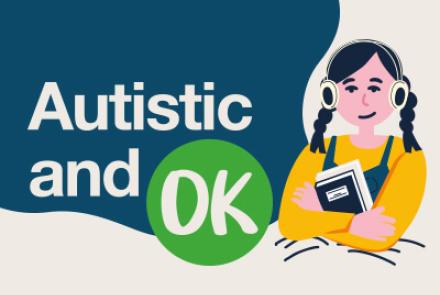New employment toolkit launched to support autistic young people
A new toolkit has been launched to support disadvantaged autistic young people into the job market, following the coronavirus pandemic.
The charities Ambitious about Autism and The Autism Education Trust have created the Transition to employment toolkit to tackle the problem of autistic young people falling out of education, employment or training when they leave school.
The latest Office of National Statistics research shows that over 700,000 young people are currently not in employment, education or training. Autistic job seekers are among the most disadvantaged, with just 22% of people with autism in full-time paid employment, the lowest of all disabled groups.
Autism, which is often described as a ‘hidden’ disability, affects the way a person communicates and experiences the world around them. Lack of understanding about differences in how autistic people process information and their sensory environment can impact on their ability to thrive in education and employment. For example, in an office environment, too much bright light, or verbal rather than written instructions could be overwhelming for an autistic person.
The Transition to employment toolkit has been developed to support those working with autistic young people to understand their needs and help them onto the job ladder, or into further training or education. It includes resources for employers, careers professionals and young autistic people themselves.
The toolkit has templates to help careers professionals understand young people’s skills, experience, career goals and ambitions, tips to help young people prepare for job interviews and information to support employers working with autistic young people. All the resources are free to download, edit and adapt from Ambitious about Autism’s website.
Jolanta Lasota, Chief Executive of Ambitious about Autism, said:
“All young people have hopes and aspirations for the future, but for too many autistic young people, these ambitions end when they finish school.
“This isn’t because autistic young people don’t want to continue in education, training or further study – but because the support they need to thrive in these environments is often non-existent.
“The coronavirus pandemic is hitting young people hardest, and vulnerable autistic young people are most at risk. It’s crucial we act now to tackle the underlying problems preventing them from reaching their potential.
“Our new toolkit empowers professionals and employers working with autistic young people to identify their individual needs and create environments in which they can thrive. It also provides advice and support for young people themselves as they prepare to take the next stage in their journey into adulthood.”
Sarah Broadhurst, Director of the Autism Education Trust, said:
“As the number of children diagnosed with autism is rising, the number of autistic young people entering the job market is increasing, too. They are full of aspirations and have big plans for the future, as all young people do, but very often encounter difficulties during their first steps into employment because recruitment processes are not catering for their different skills and needs.
“This fantastic new resource gives practical help and tools to employers, post-16 professionals and young people for every step of the way from preparing an employee profile all the way to post-placement evaluation. Thankfully, more and more employers are recognising the benefits of the diverse and unique talents autistic young people can offer.
“We hope this document will help them support many more autistic young people to fulfill their aspirations.”







